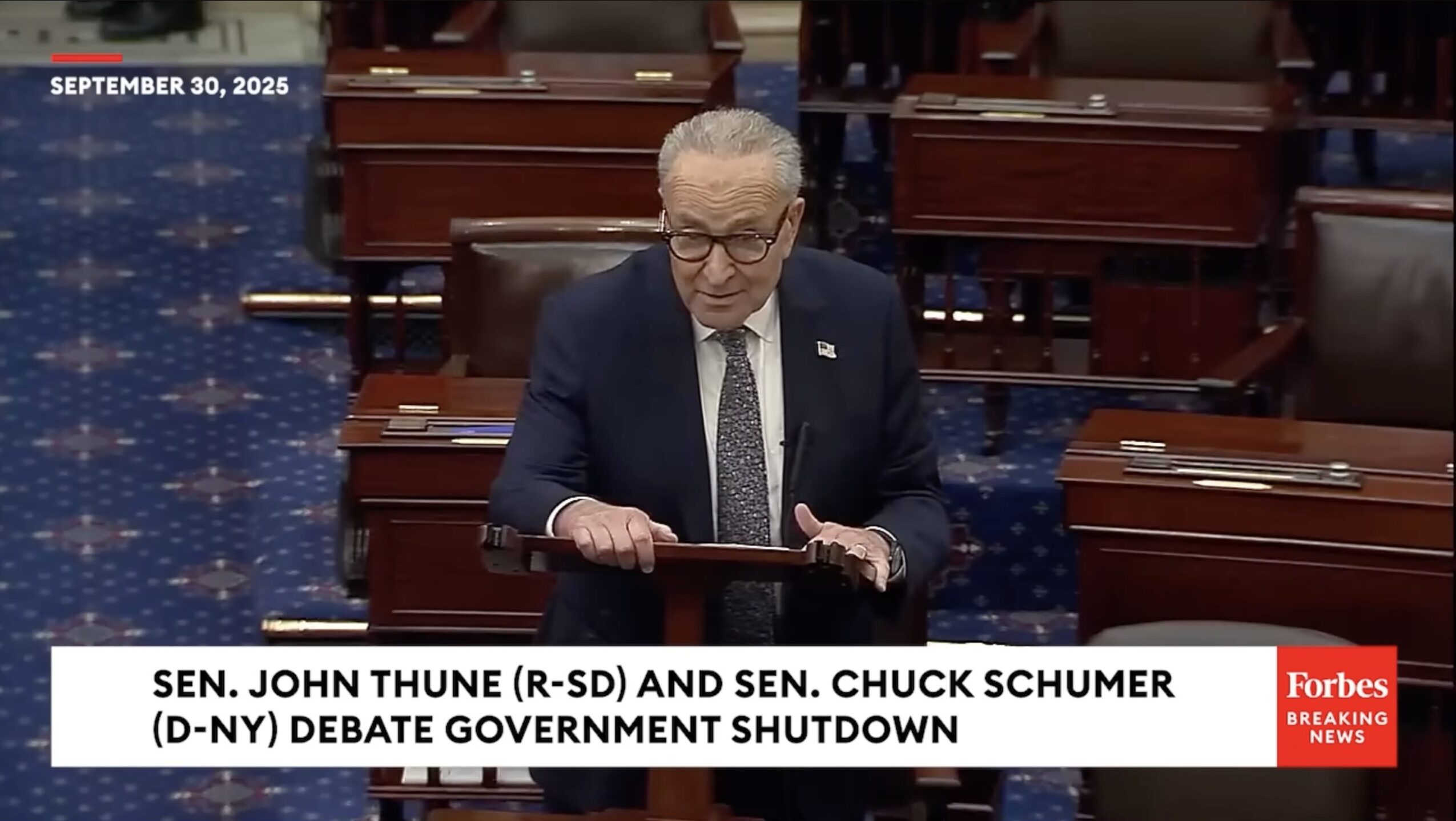Democrats opted to shut down the federal government on Wednesday rather than agree to restrictions on health care benefits for noncitizens. The decision follows a failed vote on a continuing resolution that would have extended government funding until November 21.
Explainer Democrats Opt For Government Shutdown Over Health Care Restrictions For Noncitizens
On September 19, the Republican-led House passed a clean continuing resolution aimed at maintaining funding at existing levels. This resolution would allow Congress to continue its appropriations process for fiscal year 2026. Notably, Democrats had previously supported similar resolutions 13 times during the Biden administration, as highlighted by Senator Katie Britt, R-Ala., during a Fox News appearance.
The Senate vote on the resolution fell short, with only three Democrats supporting it. A minimum of 60 votes is required for passage. Another vote is scheduled for Wednesday.
In contrast, Democrats proposed a continuing resolution that included an additional $1.5 trillion in spending. This proposal allocated $500 million to public broadcasting outlets like NPR and PBS, cut $50 billion from rural health care investments, and included funding for diversity, equity, and inclusion (DEI) projects abroad. Most significantly, it aimed to reinstate free health care for noncitizens, a point emphasized by Speaker Mike Johnson.
Vice President J.D. Vance remarked, "The Biden administration gave mass parole to millions upon millions of illegal aliens and then they simultaneously made those paroles eligible for health care benefits funded by taxpayers."
The Biden administration gave mass parole to millions upon millions of illegal aliens and then they simultaneously made those paroles eligible for health care benefits funded by taxpayers.
Vance further explained that the previous administration's legislation, known as the One Big Beautiful Bill, had curtailed health care funding for noncitizens. He stated, "Democrats want to turn it back on."
The proposed Democratic resolution would rescind Subtitle B in Title VII of the One Big Beautiful Bill, which had limited government health care benefits to specific groups, including Americans and lawful permanent residents. This change could potentially grant access to Medicaid and other taxpayer-funded health benefits to certain noncitizens, including those who received parole under the Biden administration.
Steven A. Camarota, Director of Research at the Center for Immigration Studies, testified before Congress in April that the Biden administration had granted parole status to an estimated 2.8 million individuals who would otherwise be inadmissible. According to Camarota, these parolees may qualify for welfare benefits, including Medicaid.
By rescinding Subtitle B, Democrats would effectively remove the eligibility limits that Republicans had established, thereby reopening Medicaid and other benefits to parolees. Critics argue that this change could restore health care access to millions of individuals who are in the country illegally.
The ongoing debate highlights the broader tensions between Democrats and Republicans regarding immigration and health care policy. As Congress prepares for another vote, the implications of these decisions remain significant for both fiscal policy and public health.
The government shutdown underscores the contentious political landscape as lawmakers grapple with competing priorities and the implications of funding decisions on various programs.
Why it matters
- Democrats chose a government shutdown over health care restrictions for noncitizens, highlighting deep partisan divides on immigration and fiscal policy.
- The failed Senate vote on a continuing resolution reflects the challenges in securing bipartisan support for government funding.
- Democrats' proposal to reinstate health care for noncitizens could impact millions, intensifying the debate over immigration benefits.
- The shutdown emphasizes the political stakes as Congress navigates competing priorities in a contentious environment.
What’s next
- Another vote on the continuing resolution is scheduled for Wednesday, which could alter the funding landscape.
- Lawmakers will continue discussions on immigration and health care policy as the shutdown unfolds, impacting future negotiations.
- Watch for potential appeals from both parties as they seek to address the ongoing budget impasse.
